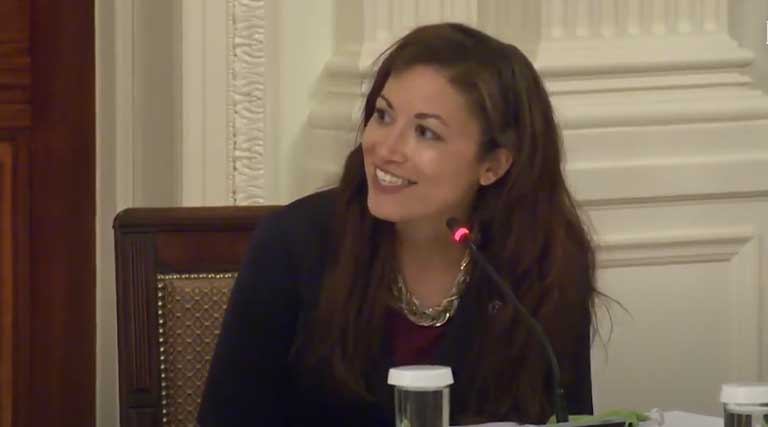Governor Lee’s Administration Unveiled Details Of Plan To Have Students Reading On Grade-Level By Third Grade.
Photo: Tennessee Education Commissioner Penny Schwinn
Photo Courtesy of The Tennessee Department of Education
The Center Square [By Vivian Jones]-
Gov. Bill Lee’s administration unveiled details of a $100 million literacy initiative Monday to provide optional reading resources and support to Tennessee students, teachers and school districts, with the goal of helping students to read on grade level by third grade.
Before COVID-19 pandemic school closures last year, about 36% of third-graders in Tennessee could read on grade level. State officials estimated last fall Tennessee third-graders will experience 50% learning loss in reading proficiency because of pandemic-related school closures.
Lee has called the Tennessee Legislature to a special session later this month to take up education issues, including literacy and learning loss, but the Tennessee Department of Education already is working to address the state’s literacy crisis.
The new initiative, Reading 360, will provide an array of supports to districts, teachers and families, including opt-in training and coaching in literacy instruction for teachers, regional networks focused on literacy and an online platform for video lessons for teachers and families at home.
The initiative also will fund more than 13,000 microgrants for literacy tutoring for students and families.
“When our students succeed, our entire state prospers, and we know that reading on grade level is foundational to the success of every student, both in and out of the classroom,” Lee said. “Reading 360 will give critical supports to districts and educators so we can address this challenge urgently and put Tennessee’s students on the right track to grow and thrive.”
Programming is set to launch by April.
Reading 360 is funded entirely with federal funds, giving the administration the ability to implement without legislative approval. The $100 million initiative was funded with $60 million in COVID-19 recovery funds and an additional $40 million in federal grants.
“I think that we have the opportunity to leverage one-time federal funding and federal grant funding to invest in our kids and, certainly, in our state,” Education Commissioner Penny Schwinn said last week.
Schwinn stressed the new program will take a comprehensive approach to improving literacy, getting districts, teachers, and families to work together.
The commissioner also stressed, however, the program is not a new statewide policy, simply optional support and resources for school districts to support literacy.
“These are supports that will really target the needs of our districts at the local level and allow for a lot of local decision making and autonomy,” Schwinn said.
“I do want to be clear that Reading 360 is not the name of a policy, it is programmatic support to complement any potential work that the General Assembly would do,” Schwinn said.
Lee’s administration is expected to propose additional literacy-focused legislation ahead of the special session on education.
The program does have support of prominent education leaders within the state Legislature.
“With the disruption our schools have experienced over the past year, it is crucial that we offer our local school districts support in addressing reading as soon as possible and Reading 360 is one way we can get started now,” House Education Chairman Mark White, R-Memphis, said in a statement.
Sen. Brian Kelsey, R-Germantown, also expressed his support of the program in a statement Monday. Kelsey serves as vice chairman of the Senate Education Committee and is a contender to succeed retired Education Committee Chair Dolores Gresham.
“I commend the governor for creating a bold plan to address the literacy crisis facing our students, schools, and districts. Literacy is the key to success for our children in Tennessee,” Kelsey said.
The state Legislature is set to convene in Nashville on Jan. 12, and the special session on education will commence Jan. 19.






